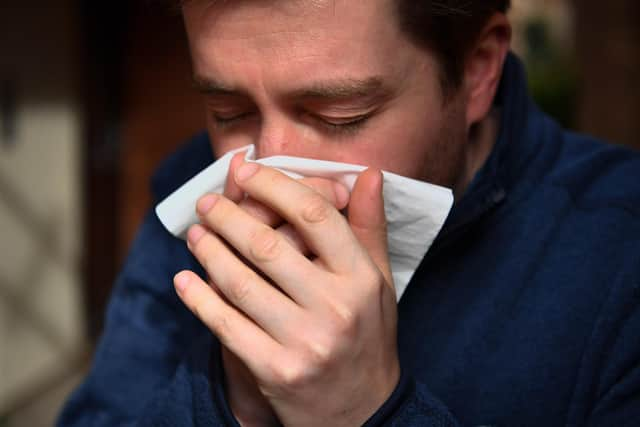World TB Day: Warning to seek treatment if you notice symptoms of tuberculosis as cases in England rise
and live on Freeview channel 276
Data from the Office for Health Improvement and Disparities for NHS Portsmouth CCG shows that an average of 12 people a year were diagnosed with TB between 2018 and 2020.
That was six in every 100,000 people – lower than the eight in 100,000 across England.
Advertisement
Hide AdAdvertisement
Hide AdThe same data showed across the Hampshire, Southampton and Isle of Wight CCG, an a 66 people a year were diagnosed with the disease between those years – or four in every 100,000 people.


However, incidences of tuberculosis in England rose for the first time in eight years in 2019, before the coronavirus pandemic brought disruption to TB-related care and support.
The significant impact of Covid-19 on TB services saw diagnoses drop in 2020 and backlogs for tests and treatments develop, prompting the government to launch its TB Action Plan for England.
Portsmouth’s director of public health, Helen Atkinson, said: ‘TB is a serious but curable and preventable disease. Certain groups are more at risk of TB including some migrant and homeless groups. The symptoms are of TB are cough, fever, weight loss that gets worse over time, tiredness and night sweats. If you have symptoms of TB, see your GP.
Advertisement
Hide AdAdvertisement
Hide Ad‘Tuberculosis rates in Portsmouth have broadly been falling since 2010, in line with falling rates nationally, and are lower than the national average.
‘The local authority has been working with UK Health Security Agency and partners to deliver the Tuberculosis Action plan for England, 2021 to 2026 which aims to decrease TB rates in England by an average of 11.5 per cent per year to meet the WHO target for TB elimination.’
Tuberculosis disease, which can be fatal if not treated properly, is infectious and can affect any part of the body, but is most likely to affect the lungs.
It is spread through inhaling droplets from the coughs or sneezes of an infectious person and symptoms can include persistent coughs, high temperatures, fatigue and swelling to the neck.
Advertisement
Hide AdAdvertisement
Hide AdThe figures come in line with World TB Day (March 24) a World Health Organization initiative, will promote awareness of the life-threatening disease and its health, social and economic consequences.
Dr Esther Robinson, head of the TB Unit at the UK Health Security Agency, urged anyone with symptoms to speak to their GP and encouraged the vaccination of children in high-risk groups.
She added: ‘Earlier detection and treatment of TB increases likelihood of recovery and reduces chances of onward spread of disease.’
TB can almost always be cured, with sufferers usually given antibiotics for around six months to combat the disease.
Advertisement
Hide AdAdvertisement
Hide AdIn 2019, eight in every 100,000 people in England had the disease, the highest proportion since 2011.
That rate fell to seven in 100,000 in 2020, with the drop attributed to the pandemic's impact on health services.
A message from the Editor, Mark Waldron
Subscribe here for unlimited access to all our coverage, including Pompey, for just 26p a day.
Comment Guidelines
National World encourages reader discussion on our stories. User feedback, insights and back-and-forth exchanges add a rich layer of context to reporting. Please review our Community Guidelines before commenting.
